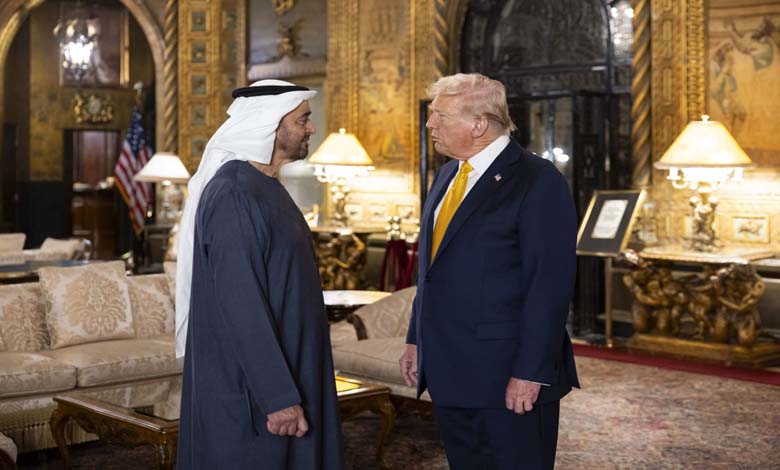Arms Deal Opens Door to Broader Partnership Between Washington and the UAE

The U.S. State Department’s approval of the deal coincides with Trump’s visit to the Gulf and includes the sale of Chinook helicopters and equipment for F-16 fighter jets.
In a move that reflects the depth of strategic relations between the United States and the United Arab Emirates, the U.S. State Department has approved a potential arms deal worth $1.457 billion. The package includes the sale of CH-47F Chinook heavy-lift helicopters, as well as components and support equipment for F-16 fighter jets. This approval comes ahead of a planned visit by President Donald Trump to the region, including Abu Dhabi, underlining the political and diplomatic symbolism of the timing.
-
UAE Discusses Formation of Interim Government in Gaza with Washington and Tel Aviv
-
Washington envoy to Yemen: We stand in solidarity with the UAE in the face of the Houthi offensive
The decision illustrates the United States’ clear commitment to supporting its strategic allies in the Gulf, especially amid increasing security challenges in the region, most notably the direct and indirect threats posed by Iran and its proxies. The UAE is considered one of Washington’s top security and military partners in the Middle East, with bilateral cooperation covering areas such as counterterrorism, maritime security, and coordination in regional operations.
Over the past years, military cooperation between Abu Dhabi and Washington has grown significantly, particularly in the context of rising regional tensions. The UAE has participated alongside the U.S. in various military missions within the international coalition against ISIS and hosts American troops and strategic military facilities that contribute to regional stability.
-
Washington confirms its support to the UAE and vows to hold the Houthi accountable for its terrorist acts
-
Washington thanks UAE, Kuwait and Bahrain help for the evacuation from Afghanistan
The deal’s approval precedes Trump’s expected visit — the former president is known for his close ties with Gulf leaders, especially the Emirati leadership, notably President Sheikh Mohammed bin Zayed. During his first term, the Republican president described Abu Dhabi as a “key player” in shaping the region’s security and political framework, and he played a pivotal role in supporting the Abraham Accords, which led to the normalization of relations between the UAE and Israel in 2020 — a development that reshaped the Middle East’s geopolitical landscape.
Trump’s upcoming visit carries symbolic significance, with expectations that it will reaffirm the strategic partnership with the UAE. This arms deal could serve as a prelude to broader understandings in the fields of security, politics, and possibly economics.
-
Washington Drops Normalization Condition with Israel in Response to Saudi Nuclear Demands
-
Foiling the Electronic Swarm Conspiracy: UAE-Saudi Warning Against Inciters of Discord
According to a statement by the U.S. Department of Defense, the sale includes CH-47F Chinook helicopters — advanced military transport aircraft with high capabilities in logistics support and troop and equipment transport. These are among the latest models in the U.S. Air Force, reflecting American trust in its Emirati partner and its willingness to provide cutting-edge military equipment.
The deal also includes components and support for F-16 jets, which are a core part of the UAE Air Force and are used in various missions including air defense and ground attack. The Pentagon confirmed that Boeing Helicopter Aircraft and Honeywell Engine are the primary contractors for the Chinook helicopters, while no specific contractor has yet been designated for the F-16 support package.
-
Are the UAE Playing a Mediation Role Between Iran and the United States?
-
America Approves Two Arms Deals for the UAE and Saudi Arabia
If officially signed, this deal sends a clear message to regional and international players: the U.S.-UAE alliance remains strong, and Washington views Abu Dhabi as a key partner in safeguarding mutual interests in the region. The continued arms transactions, even amidst political changes in the U.S., highlight the institutional and strategic depth of the relationship.
Moreover, the deal allows the UAE to bolster its defense capabilities amid mounting security threats — whether maritime challenges in the Gulf or destabilization efforts through armed groups acting against Gulf interests.
-
The President of the United Arab Emirates, the most influential leader with a realistic and peaceful diplomatic policy
-
Linderking visits UAE, Oman, Saudi Arabia to consolidate Yemen truce
These developments suggest a likely expansion and deepening of military ties between Abu Dhabi and Washington. Trump’s possible visit could lead to new agreements covering major regional issues such as energy security, Red Sea stability, and countering Iran’s growing influence in Yemen, Iraq, and Syria.
Ultimately, this arms deal is more than just a weapons purchase; it is part of a broader strategy reflecting the mutual trust between the two nations and laying the groundwork for a new phase of defense and diplomatic cooperation in a world undergoing profound shifts in power dynamics.
-
Ghafoor Convicted: Fruitful US-UAE cooperation in combating money laundering
-
Qatar bribes a prominent US ambassador to strike at Saudi Arabia and UAE interests and support Houthi
-
The duality of Qatar, the enemy and the ally at the same time












